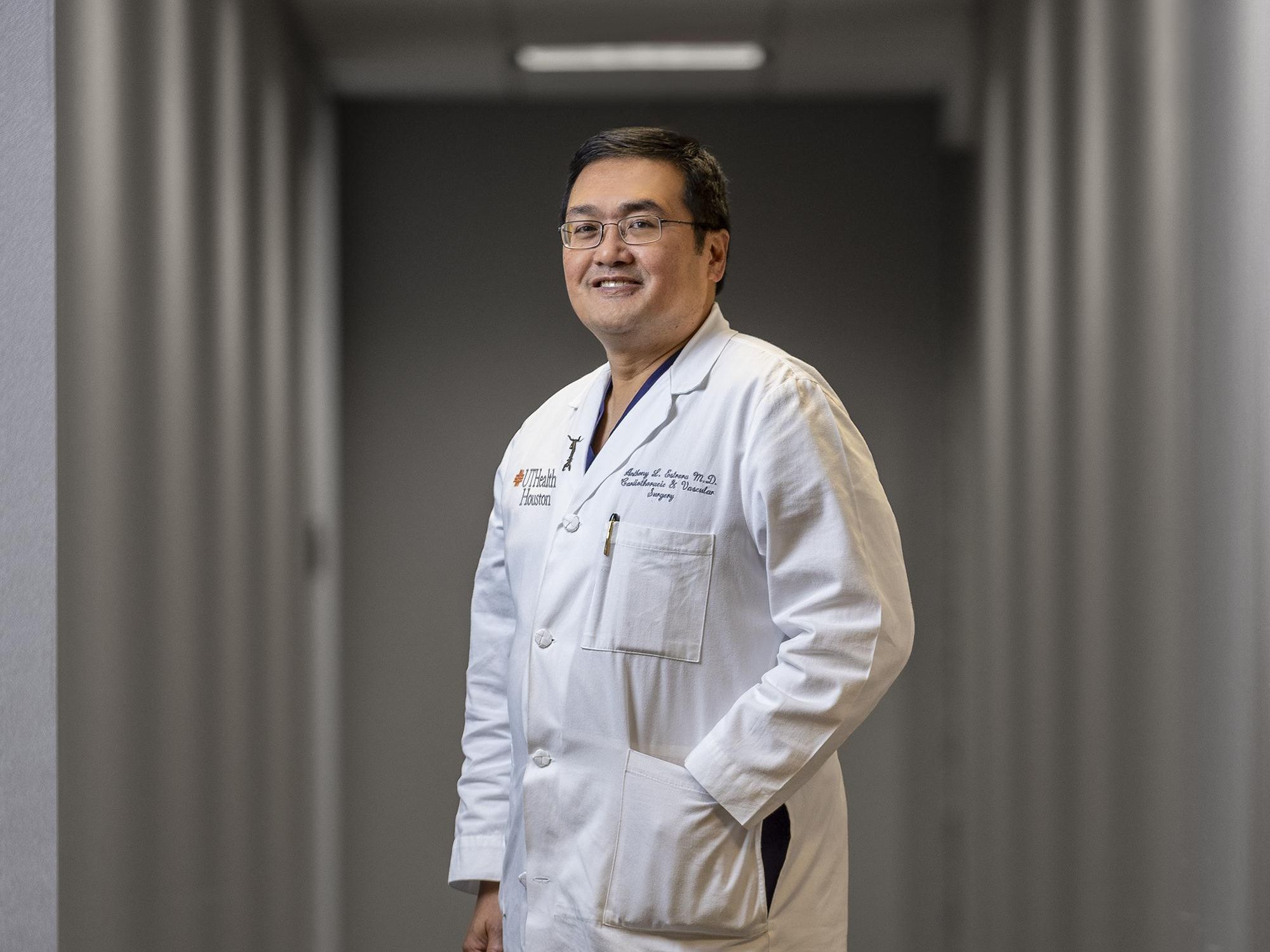Q&A
How UTHealth Houston is improving health outcomes for cardiovascular disease

Anthony L. Estrera, MD.
As the No. 1 cause of death across the nation, cardiovascular disease can bring devastating consequences to patients and their families. Thanks to innovations in preventive treatments, cardiac imaging, and surgical techniques, people are more likely to receive lifesaving care than ever before.
Anthony L. Estrera, MD, Chair of the Department of Cardiothoracic and Vascular Surgery at McGovern Medical School at UTHealth Houston, answers questions about how innovations in the field are improving heart and vascular health in Houston and beyond.
Dr. Estrera holds the Hazim J. Safi, MD, Distinguished Chair in Cardiothoracic and Vascular Surgery and is part of the renowned UTHealth Houston Heart & Vascular team advancing cardiovascular medicine and collaborating to treat complex cases from every angle. He sees patients through UT Physicians and Memorial Hermann Heart & Vascular Institute.
Question: Houston has an extraordinary reputation for healthcare innovations, especially in cardiovascular medicine. What does the future of heart and vascular medicine look like?
Answer: A lot of major advancements in cardiovascular medicine and surgery happened in Houston with Dr. Michael DeBakey and Dr. Denton Cooley in the 1950s, ’60s, and ’70s, including the management of complex heart issues through open surgery.
Over the last 20 to 30 years, this has shifted toward less invasive approaches, such as minimally invasive surgery. Taking it one step further, we are now investigating and performing catheter-based surgeries to treat much more complex cardiovascular diseases.
That’s really the future, hence why we have recruited the best nationally and internationally recognized physicians to address cardiovascular disease from a surgical and research standpoint.
For example, Dr. Gustavo Oderich is able to replace large parts of the aorta using a catheter. A lot of catheter-based surgeries require X-rays, which have an inherent drawback of radiation exposure and the use of contrast dyes. His team is developing techniques using GPS, which can tell the surgeon where to place the stent or put the valve without using radiation.
Similarly, Dr. Danny Ramzy is performing complex cardiac surgery with robotic arms through a small incision. The robotic arms provide the visualization and dexterity to perform the treatment through a very small incision.
I think what sets our program apart is the fact that we do everything, and we do it well. We have some of the top folks in all specialties: surgery, interventional cardiology, genetics, and electrophysiology.
As the future continues to evolve in the heart and vascular space, I have seen and appreciate the merging of these areas, which keeps the patient at the heart of what we do.
Q: If a person has a family history of something potentially catastrophic, like an aortic rupture, what can they do to proactively protect their health?
A: Understanding your genetic risk can help provide a pathway for protecting your health. Dr. Dianna Milewicz and her research team are advancing the field in genetic and cardiovascular disease to determine the natural history and prognosis of a patient based on their genes. They have already identified the altered genes associated with aortic dissection, a discovery that is now saving lives worldwide.
If you know you have a gene with a poor outcome, you can intervene sooner before it becomes a problem. For example, there was a young high school girl whose two brothers and father died from a ruptured aneurysm. The mom sought out Dr. Milewicz, who identified that the girl had the same genetic defect that her brothers and father did. Based on how malignant that genetic defect is, she was referred for surgery where we replaced her aorta and rebuilt her heart valve. Because of this, she is now able to lead a normal life.
Question: As the Chair of the Department of Cardiothoracic and Vascular Surgery at McGovern Medical School, you and your team are responsible for training new physicians. What excites you most about this new generation of doctors?
A: Training the next generation of physicians, surgeons, and healthcare professionals is one of the most important duties we have at UTHealth Houston, and it is what makes our program invaluable to society in general.
As a clinician, you treat individual patients — which is very important. As an educator, you affect entire future generations of patients on a completely different level, and you are going to have an impact for years to come.
Furthermore, our program has a succession plan to make sure we are always positioned to train and bring in the best healthcare providers who will continue pushing innovation, quality, and patient satisfaction long into the future. That is what excites me most.
